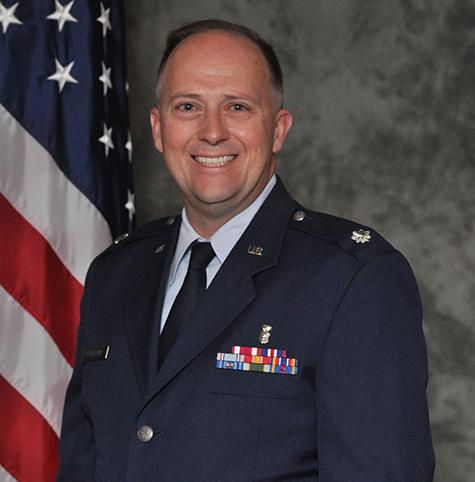
Dr. Scott Everson recently joined the U.S. Department of Energy as the Chief Medical Officer. He is a board certified occupational and environmental medicine physician with over 20 years of experience in delivering high-quality care to patients as well as leading organizations in recognizing, managing, and preventing work-related injury and illness. He retired from the U.S. Air Force in October and he most recently served as the Chief of Occupational and Environmental Medicine for the U.S. Air and Space Forces.
In this role, he served as the subject matter expert and primary consultant to the Surgeon General on all matters pertaining to occupational and environmental medicine. He earned his Doctor of Osteopathic Medicine degree from the Kansas City University of Medicine and Biosciences and he completed a Master of Public Health degree at the University of Cincinnati. He currently lives in Dumfries, Virginia with his wife and three children. In his free time, he enjoys spending time with his family.
DOE’s CMO serves as the chief occupational and environmental medicine physician for the Department in support of over 50 occupational health facilities which in turn provide healthcare over 100,000 DOE Federal and contractor employees, as well as over 60,000 former DOE employees. The Department’s CMO functions as an integral member of the Department’s Environment, Health, Safety and Security (EHSS) organization.
Occupational Medicine(OM)
Health and Safety Programs
OM supports health and safety through the prevention, as well as the management of injury and illness. Medical screening and surveillance for the early detection of overexposures and health effects are central considerations. Epidemiologic studies can provide OM professionals with valuable information regarding the risks of and specific risk factors associated with occupational injuries and illnesses.
Employee Concerns and Differing Professional Opinions Programs
OM supports security through the assessment of physical and mental suitability of personnel for security-related duties, including access to information and materials associated with national security significance. Protective Forces personnel also undergo assessments which both ensure their suitability and enable their effective rehabilitation and reintegration following significant injuries and illnesses.
Security Programs
OM supports security through the assessment of physical and mental suitability of personnel for security-related duties, including access to information and materials associated with national security significance. Protective Forces personnel also undergo assessments which both ensure their suitability and enable their effective rehabilitation and reintegration following significant injuries and illnesses.
Employee Assistance and Substance Abuse Programs
Departmental requirements provide for assistance programs for employees with respect to stress management, substance abuse counseling, and crisis intervention. Employees in safety-sensitive or possessing security clearances may also be subject to drug-testing in which medical review officers play a critical role in validating use of prescribed medications among individuals who test positive and ensuring that their medical condition and medication do not pose a significant risk.

